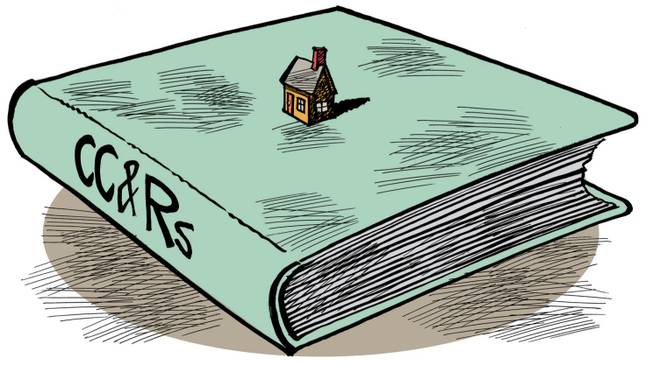Sunday, March 4, 2012 | 2 a.m.
Nevada is a land of homeowners associations, private entities run by homeowners (ideally) and offering all the benefits and downfalls that amateur governance implies. Statewide, there are almost 3,000, covering 485,000 single-family homes, condos and town houses — more than a third of all housing units in Nevada.
Why do we have HOAs?
HOAs began in Nevada in the 1960s to deal with condominiums: One person owns the inside of a condo, but who fixes the roof and mows the lawn? Hence, the state passed laws to provide an ownership structure, according to Michael Buckley, an attorney who helped write the state law that governs “common interest communities.”
In the late 1980s, developers in Las Vegas thought people would like to have control over their neighborhoods — country-club living for the rest of us.
“I think at the beginning, people liked to live in them,” said former Assembly Speaker Barbara Buckley. “It was the idea of having something exclusive. You could control visitors, keep property value up.”
Pardee built a development in the late 1980s in Las Vegas, followed by the Howard Hughes Corp., which had a grand vision for a place called Summerlin.
Once that was built, the idea caught on.
Local governments liked HOAs because they handled some traditional government functions — maintaining things like roads, sidewalks, streetlights, even parks.
While local governments never officially required new developments to form HOAs, planning agencies would encouraged it as a way to cut down on government costs and help keep pace with the growth.
Who runs them?
Homeowners elect their HOA’s board of directors. Each unit gets one vote, according to Nicholas Haley, education and information officer with the state’s Office of the Ombudsman for HOAs.
Since a law passed in 2009, all directors are required to own a unit.
Board members can’t be paid and can’t have any kind of employment contract with the HOA.
In almost 80 percent of the cases, day-to-day operations are in the hands of management companies hired by HOA boards.
What sort of things do HOAs do?
Lots. Depending on the governing documents, HOAs can dictate things like the type of pets allowed, where people can park, the color of houses, the type of fence, how high grass can grow and how long you garbage containers can be left out.
HOAs can also maintain amenities like swimming pools, parks, streets and landscaping.
They also determine who owns the sewage pipe that broke.
They do have to operate within the bounds of federal, state and local law. They can’t, for example, discriminate based on race. (But because federal law allows it, they can operate age-restricted communities, for those 55 and older.)
They can also place a lien on homes for unpaid dues or fines, and ultimately foreclose. That happened 90 times last year.
Is there a limit on what they can assess in fees?
No. But fees must be used for the purposes laid out in the association’s governing documents.
What do you do if you have a dispute with your HOA?
The state has established separate processes (two of them) to handle HOA complaints.
If you believe there’s a violation of law, you can file a complaint with the Ombudsman’s Office.
If you believe the HOA is violating its governing documents, there’s an “alternative dispute resolution” that involves an arbitrator. Parties can appeal the arbitrator’s decision in court.
The ombudsman’s office can be reached at 702-486-4480, or toll free, at 877-829-9907.


Join the Discussion:
Check this out for a full explanation of our conversion to the LiveFyre commenting system and instructions on how to sign up for an account.
Full comments policy